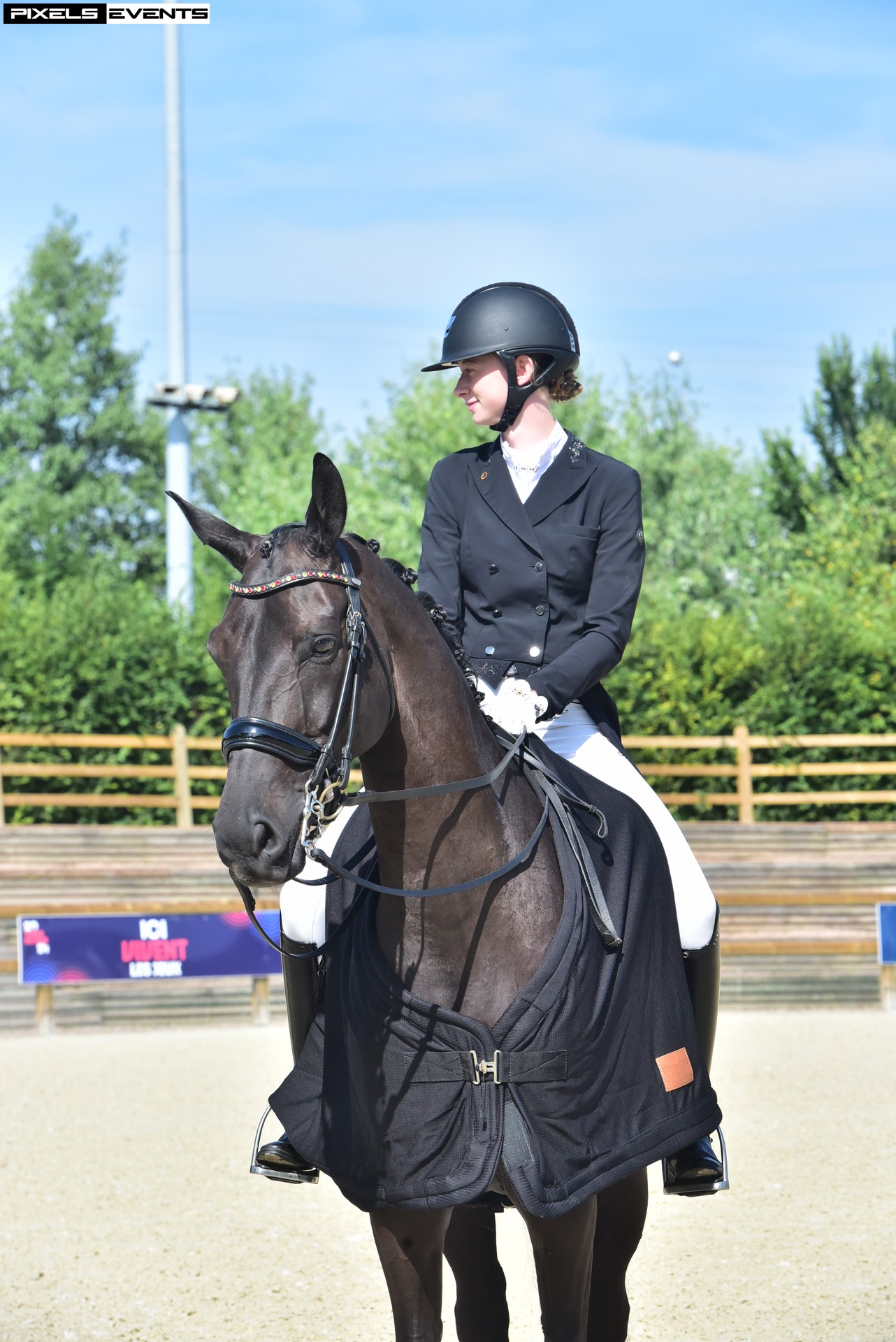Dans la même rubrique
-
Partager cette page
Campus standouts - Clara Mourlon Beernaert

Tell us about yourself
My name is Clara Mourlon Beernaert. I just turned 22. I have been involved in horse riding, specifically dressage, since a young age, and I have been practicing it at the international level for almost 10 years. As for my studies, I am currently in the final year of my Master's in Business Engineering at Solvay, on exchange in Taiwan (NTU).
What motivated your choice for this school, and how do you balance your studies with your high-level equestrian career?
Unlike some people, choosing my studies after secondary school was not the easiest decision. I hesitated between pursuing law or business studies for a long time. However, I wanted to work in an environment where a quantitative approach was part of daily life. That is why I ultimately chose Business Engineering. I chose Solvay for several reasons:
- It is a school known for its high level of education.
- Solvay and ULB values align with mine, such as excellence and free examination.
- The university has a dedicated unit supporting high-level athletes, allowing me to pursue university studies in an appropriate environment.
As a high-level athlete, what are the main lessons you've learned from your equestrian career, and how do you apply them to your academic life?
The main lessons from my sporting career can be easily applied to my academic life. The three most important to me are:
- I have learned the importance of persevering in adversity and believing in oneself while being open to self-reflection. When facing challenges, whether in academics or sports, I try to step back and determine alternative paths to achieve goals.
- I have realised the significance of planning and setting personal goals, both short-term and long-term. Sticking to these goals can be challenging, but it remains essential, especially with numerous temptations to deviate.
- It is crucial to surround oneself with the right people, not be afraid to ask for help when needed, and seize opportunities. Asking for help is not a sign of weakness but a necessary step for improvement, a lesson I applied from my early university days.
Can you explain how ULB and Solvay Brussels School support students with specific needs?
To my knowledge, there are various types of athlete status at ULB. The status I have, in collaboration with ULB and the sports league (equestrian), allows me to choose practical workshop groups with schedules that align best with my training. Additionally, with coordination from relevant professors and faculty members, certain presentations or exams can be rescheduled, and I can be excused for absences during official training or competitions. To arrange these modifications, contacting Mrs. Hennuy, a member of ULB Sport, is necessary to explain the situation and determine possible adjustments.
What specific initiatives or resources does the University provide to support you in your dual role as a high-level athlete and student?
The most helpful initiatives and resources for me are the guidance sessions accessible to all students and the mutual support among students. When I can't attend certain theoretical classes or practical workshops, I join guidance sessions to ask questions about any part of the material, whether from the beginning of the year or the current subject.
Contrary to stereotypes about Solvay, student collaboration, whether through SEP or Facebook groups, is significant and has greatly contributed to my academic success.
How do you manage the unique challenges related to your status as a student with specific needs while pursuing studies at a demanding level like Solvay Brussels School?
The biggest challenge I face is time management. I try to plan and organise my days to avoid unnecessary time loss. However, I sometimes find myself being too ambitious with my work organisation. Hence, I now plan periods in my week to catch up on any accumulated backlog. There are times in the year when I feel overwhelmed. To avoid excessive stress, I prioritise tasks and tackle them one at a time without worrying about the others. Additionally, practicing an individual sport allows me to adjust my schedule relatively easily compared to team sports. Finally, I am grateful to be surrounded by a team that supports me daily, including my parents, sister, friends, and coaches.
Are there moments when you felt particular support and appreciation from Solvay Brussels School in your academic and sports journey?
In general, all professors are very understanding when I have to be absent for competitions. Last year, I had to miss several classes for the same course. Every time I returned from these trips, the professor would ask about the competition results.
Do you plan to integrate your education at Solvay Brussels School into your future high-level equestrian projects, and vice versa?
High-level sports are costly and demanding. I believe my studies at Solvay will help me plan and manage my resources more effectively and intelligently. Additionally, in both areas, I have recognised the importance of investment, planning, and short- and long-term strategy. Finally, I think it is essential to carry over values acquired in my sports career, such as humility, perseverance, teamwork, and self-reflection, into my professional life.
What advice would you give to other students juggling rigorous academic requirements while pursuing a high-level sports career?
It may sound repetitive and perhaps naive but I would say :
- Be organised
- Persevere in challenging times
- Utilise the support provided by the university, whether through the specific needs student status or guidance and various support services
- Surround yourself with people who support your goals